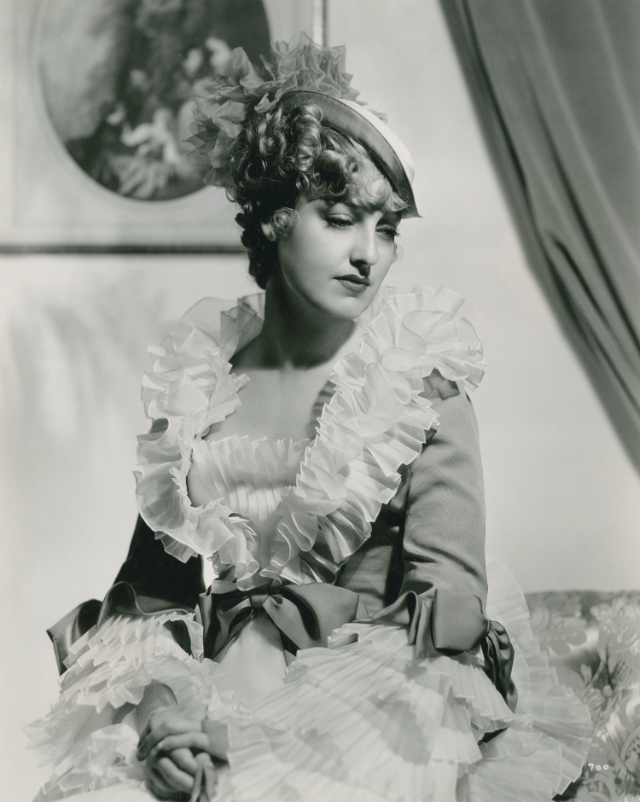The Merry Widow is a 1934 film adaptation of the 1905 operetta of the same name by Franz Lehár. The film was directed and produced by Ernst Lubitsch and stars Maurice Chevalier and Jeanette MacDonald. A French-language version was produced at the same time and released in France the same year as La veuve joyeuse.
In the film, MacDonald plays Sonia, a captivating and incredibly wealthy widow from the tiny, impoverished European country of Marshovia. Her immense fortune is crucial to Marshovia’s economy – she literally owns “52% of every cow and cowtown.” Her character is initially in mourning, veiled and withdrawn, but she longs for something more. When she decides to move to glamorous Paris, it sends the Marshovian government into a panic, as her potential remarriage to a foreigner could cripple their nation.
MacDonald, already known for her operatic singing voice and elegance, dazzled audiences in this role with both her vocal performances and her on-screen charisma. The film co-stars Maurice Chevalier as Count Danilo, a charming playboy assigned to woo her back to her late husband’s small fictional kingdom to save its economy.
The film is celebrated for its “Lubitsch touch,” a signature of director Ernst Lubitsch, which infused the musical with sophisticated wit, romantic comedy, and visual elegance. Despite some reports of the stars not getting along off-screen during this particular production, their on-screen chemistry was undeniable and contributed significantly to the film's success.
MacDonald’s stunning costumes by Adrian and the memorable musical numbers, including the iconic “Merry Widow Waltz,” “Vilia,” and Chevalier’s “Girls, Girls, Girls” and “I’m Going to Maxim’s,” all contributed to its enduring popularity.





































.jpg)





0 comments:
Post a Comment